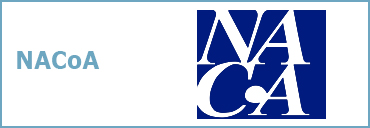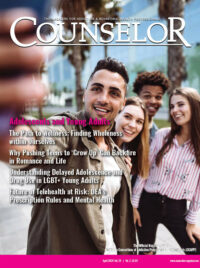Share

What happens when a parent is discharged from addiction treatment and comes home? Who prepares the children for understanding that sobriety brings a new set of challenges? If these children have not been part of an educational support group for the children of clients in treatment; or referred to a family service agency in the community or a student assistance program at their school; or given at least one session with the parent’s therapist or the agency’s family therapist during or prior to discharge, how can they be expected to be prepared for all the changes?
If addiction counselors want to help their clients have more successful outcomes, one session with the family—especially in age-appropriate ways with the children—should be the minimum, as well as referral to a family service agency for ongoing support and understanding when the treatment program does not provide support to the families of clients during treatment and/or after. Children may continue to feel blamed and carry the wounds of the rejections, blaming, and shaming that were hallmarks of their childhoods prior to the parent beginning treatment—they fear that the slightest stressor in the family will trigger the old behaviors and all will be lost again. They have a right to know how addiction and recovery work, that none of what happened before (or in the present) was ever their fault, and that there are people and programs that can help them understand and heal from all the prior hurts.
How can we expect them to be part of a new life for the family if they are not equipped with the age-appropriate information, tools, and guidance to understand the changes that are happening and will continue to happen for each of them and the whole family if they hope to heal?
“Emmy’s Story” by Jerry Moe
Emmy, age eleven, attended a children’s program while her mom was in treatment for alcoholism. Emmy met many children who knew all too well the pain and confusion that envelopes and consumes families when addiction is large and in charge. She learned that it was not her fault and that she could not make things better for her mom. Her parents also participated in the program and all of them learned about the language of recovery and communicated with each other in some brand new ways.
They talked about how this disease had hurt all of them and made plans, individually and collectively as a family, to move forward with self-care strategies and healing. I would see the family on Wednesday evenings at Kids’ Night, a continuing care process for each of them. After a few months of regular attendance, they fell off the grid and I did not hear from them.
The aforementioned children’s program teaches youngsters that they are not alone and that there are safe people and places that can always help. The call came on a Saturday morning at my office. As soon as she heard my voice, Emmy started to cry. “I’m really scared right now. My parents got into a terrible fight this morning and it reminded me about how awful it used to be,” she shared. Emmy poured out all her worries, concerns, and feelings, and all I did was listen. When she let it all out, I asked her if it felt safe to let her parents know about her thoughts and concerns. She quickly said, “No,” but liked the idea of writing her mom a note. She decided she could now handle things much better and thanked me.
I would not find out about what Emmy wrote to her mom for a few days, until the next Kids’ Night. She told her mom how proud she was of her for getting help. She offered thanks about how things were getting better at home. Then Emmy wrote clearly and honestly about her fear. She described being scared that addiction was slowly creeping back into the family and made a plea for mom to go back to her meetings. She told her that she did not want to lose her and that she needed and loved her. And then she said, “Please get help.” Later that night, I was told, Emmy’s mom, after returning home from a meeting, hugged and kissed her daughter. Then she held Emmy and thanked her. They both cried.
What if there had not been a children’s program for Emmy to attend?
“A Police Officer’s Concern” by Chuck Noerenberg
After a police officer arrested a parent for possessing illegal drugs, the offender was ultimately placed on probation and required to enroll in a treatment program because of addiction. There was hope that the drug-using parent would overcome the addiction and that the family would live in a heathier and safer home setting. The police officer later learned from the probation officer that the drug-using parent had been kicked out of the treatment program for being “uncooperative” and for noncompliance with program rules.
The police officer wondered what would happen to that family, fearing a repeating cycle of drug use, an uncertain home setting, and potentially more arrests. After years of answering 911 calls to homes with parents involved with drugs, he wanted to know who was seeing that the children and the spouse at home would be safe. He wondered whether anyone was helping that family understand addiction and how it could control the family and hurt everyone in the house. What support did the family have?
The officer wanted to know what the responsibility of the discharging treatment program was in such situations, as kicking a client out of a program left the entire family, especially the children, with an addiction problem. Was it now up to law enforcement and child welfare to deal with the addiction? What was to happen next?
A Family Disease
What happens next? Often not much.
The child’s frame of reference from “before” is confusion and fear when the addicted parent was either unavailable or railing at them, blaming them for anything that was going awry at the moment, and the other parent was once again too preoccupied to pay attention to the children. How can they know what to think when a returning parent who was absent, irresponsible, or irrational in the recent past suddenly wants to return to the parental role? Who will help them understand that recovery is important for every member of the family, including them; that all have been hurt by this disease; that recovery comes in different stages for each; and that all need help to recover from addiction’s damage? They need to learn how to be kids and to understand it was never their fault and it is not their responsibility after treatment.
If children do not benefit from a multisession educational support group or, at the very least, from an individual session with a counselor prior to the parent’s discharge from treatment—whether early discharge for noncompliance or the end of a planned treatment regime—the children are left just as bewildered as when the parent entered treatment. How can the confusion and fear they feel be dispelled when it was so ingrained in their daily experience during the years of the parent’s active addiction without being given the information and guidance needed to understand? When children do not get their reality validated, when they have thought for years that it was their fault that Mom or Dad drank too much or misused drugs, they are going to continue feeling responsible for what they could not fix before the parent went to treatment. Unless they are given accurate and supportive information that can give them clarity and hope, they will be watchful and continue to fear that the other shoe will drop.
There has been so much trauma unaddressed in the family. Mom and Dad have now started to change and are often anxious to be talking about how hard they have worked to get clean and sober and want the family to appreciate that. The parent in early recovery wants to recapture their perceived authority in the house and wants respect from their children who have not been helped to understand the rapid changes or that they deserve help to have their own recovery. They do not understand that getting better will be different for each member of the family. They do not know how to communicate their feelings or their confusion, or that it will take a long time for everyone to heal individually and to learn how to be part of a new family struggling with recovery.
We say addiction is a “family disease,” and we have known this for over forty years, but we do not do the minimum to help the whole family heal. If we do not work to ensure educational support programs through our treatment services or, at the very least, provide an individual session with each child of any client leaving treatment, then we need to advocate for student assistance programs in our schools, where thousands of school-age children have recovered in groups—groups that also helped them to have improved behavior and increased academic success. If we believe and say that addiction is a family disease, then we are responsible for acting on that knowledge. If we say that addiction and its accompanying trauma move from generation to generation in families, then only working to help one person in the family where all members have been devastated by it does not suggest a full appreciation for recovery. Inaction to help the children of adults who should be responsible ignores the clear evidence that there is continued developmental damage to the children’s brains from the unending emotional stress that thrives in their confusion and fear.
I will leave you with a closing thought: For generations, our country’s leaders have talked about our children being our most precious possessions and our future. In the addiction treatment and recovery world, there is little evidence of that belief being compelling. With few exceptions, the field’s systematic ignoring of the critical issues that surround the children of addicted parents facilitates the continued generational transmission of the addiction disease and its accompanying trauma through countless families, where it might have been different if only actions and programs matched the rhetoric. Your clients and their children deserve better.
Acknowledgements: I would like to thank Jerry Moe, MA, national director of the Hazelden Betty Ford children’s programs, and Chuck Noerenberg, JD, former Minnesota State drug policy coordinator and past president of the National Alliance for Drug-Endangered Children for their contributions to this article.
Tian Dayton, PhD, is the author of sixteen books, including The ACoA Trauma Syndrome; Emotional Sobriety; Trauma and Addiction; Forgiving and Moving On; and The Living Stage. In addition, Dr. Dayton has developed a model for using sociometry and psychodrama to resolve issues related to relationship trauma repair. She is a board-certified trainer in psychodrama, sociometry, and group psychotherapy and is the director of The New York Psychodrama Training Institute.









 Counselor Magazine is the official publication of the California Association of Addiction Programs and Professionals (CCAPP). Counselor offers online continuing education, article archives, subscription deals, and article submission guidelines. It has been serving the addiction field for more than thirty years.
Counselor Magazine is the official publication of the California Association of Addiction Programs and Professionals (CCAPP). Counselor offers online continuing education, article archives, subscription deals, and article submission guidelines. It has been serving the addiction field for more than thirty years.